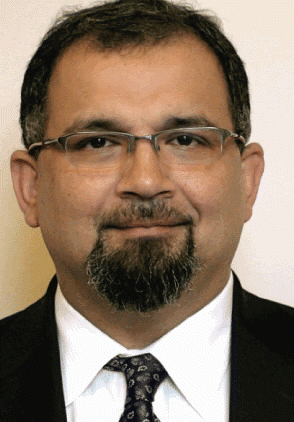 Nasir I. Bhatti, MD, said that the main task for improving assessment of operative competency is to develop assessment tools that are practical and feasible
Nasir I. Bhatti, MD, said that the main task for improving assessment of operative competency is to develop assessment tools that are practical and feasibleRemediation, Not Termination
The ultimate goal of identifying residents who are surgically challenged is remediation. According to Douglas A. Girod, MD, of the Department of Otolaryngology-Head and Neck Surgery at the University of Kansas Medical Center in Kansas City, the goal is to graduate competent residents and to avoid punitive measures and stigmatization.
Explore This Issue
March 2009Remediation needs to be tailored to correcting the deficiencies particular to each resident. For example, a resident having difficulty with manual dexterity may be asked to practice working with their hands in an anatomy lab. If the problem is a matter of decision-making skill, the resident may be required to work more closely with one of the better teaching surgeons.
Whatever needs to be done, identifying the problem early and intervening early are key. You want to make sure you have a method of identifying surgically challenged residents early, said Dr. Girod. Whatever evaluation method you use, make sure it is designed to catch residents early, that you intervene early, and that you document everything.
Accurate and thorough documentation is particularly important in those rare and unfortunate cases where remediation is not possible and a surgical resident may be asked to switch medical specialties.
©2009 The Triological Society
Leave a Reply